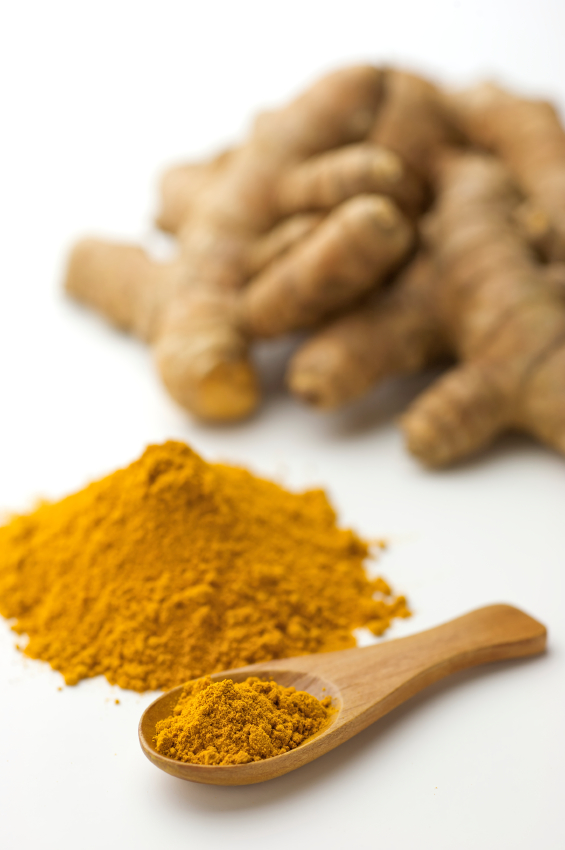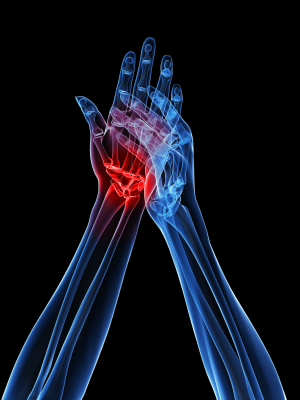|
Turmeric From the University of Maryland Medical Center Turmeric has been used in India for thousands of years and is a major part of Ayurvedic medicine. It was first used as a dye and then later for its possible medicinal properties. Curcumin is the main beneficial constituent in terms of health, and is relatively non-toxic in the body. Turmeric grows wild in the forests of South and Southeast Asia. It is one of the key ingredients in many Asian dishes. Indian traditional medicine, called Ayurveda, has recommended turmeric in food for its potential medicinal value, which is a topic of active research. Turmeric (Curcuma longa) has been used for 4,000 years to treat a variety of conditions. Studies show that turmeric may help fight infections and some cancers, reduce inflammation, and treat digestive problems, and it has gotten a lot of press lately. Turmeric is widely used in cooking and gives Indian curry its flavor and yellow color. It is also used in mustard and to color butter and cheese. Turmeric has been used in both Ayurvedic and Chinese medicine as an anti-inflammatory, to treat digestive and liver problems, skin diseases, and wounds. Curcumin is also a powerful antioxidant. Antioxidants scavenge molecules in the body known as free radicals, which damage cell membranes, tamper with DNA, and even cause cell death. Antioxidants can fight free radicals and may reduce or even help prevent some of the damage they cause. In addition, curcumin lowers the levels of two enzymes in the body that cause inflammation. It also stops platelets from clumping together to form blood clots. Possible Interactions: If you are being treated with any of the following medications, you should not use turmeric or curcumin in medicinal forms without first talking to your health care provider Blood-thinning Medications — Turmeric may make the effects of these drugs stronger, raising the risk of bleeding. Blood-thinners include warfarin (Coumadin), clopidogrel (Plavix), and aspirin, among others. Diabetes Medications — Turmeric may make the effects of these drugs stronger, increasing the risk of hypoglycemia (low blood sugar). Drugs that reduce stomach acid — Turmeric may interfere with the action of these drugs, increasing the production of stomach acid:
MSI Funded Paper: Potential Health Benefits of Turmeric
Curcumin’s potent anti-inflammatory properties have prompted examination of its potential for preventing and managing rheumatoid arthritis and other related conditions.(81) There is preclinical evidence that curcumin has the potential to improve arthritis symptoms. Administration of curcumin to rodents (eg, 4 mg/kg per day, intraperitoneally [IP]) using experimental models of arthritis resulted in reduced levels of tissue inflammation as well as decreased expression of inflammation-associated cytokines and other inflammatory mediators.(23,82) Notably, curcumin can decrease expression of COX-2 and, in combination with celecoxib, can synergistically inhibit the COX-2 activity and cell proliferation associated with osteoarthritis. Other natural products, such as the isothiocyanate sulforaphane, may synergize with curcumin in suppressing inflammation.(83) A randomized, double-blind, placebo-controlled study of the effect of a mixture of curcuminoids on canine osteoarthritis yielded mixed results, however.(84) Allergy Data from several animal studies suggest that curcumin can ameliorate immune cell-associated bronchial inflammation.(88,89) Supporting Research Reference Singletary, K. Turmeric: Overview of Health Benefits. Nutrition Today. 2010 September/October: 45(5): 216-225. Aggarwal BB, Sundaram C, Malani N, Ichikawa H. Curcumin: the Indian solid gold. Adv Exp Med Biol. 2007;595:1-75. Asai A, Miyazawa T. Dietary curcuminoids prevent high-fat diet-induced lipid accumulation in rat liver and epididymal adipose tissue. J Nutr. 2001;131(11):2932-2935. Baum L, et al. Curcumin effects on blood lipid profile in a 6-month human study. Pharmacol Res. 2007;56(6):509-14. Blumenthal M, Goldberg A, Brinckmann J. Herbal Medicine: Expanded Commission E Monographs. Newton, MA: Integrative Medicine Communications; 2000:379-384. Curcuma longa (turmeric). Monograph. Altern Med Rev. 2001;6 Suppl:S62-S66. Darvesh AS, Aggarwal BB, Bishayee A. Curcumin and Liver Cancer: A Review. Curr Pharm Biotechnol. 2011 Apr 5. [Epub ahead of print] Davis JM, Murphy EA, Carmichael MD, Zielinski MR, Groschwitz CM, Brown AS, Ghaffar A, Mayer EP. Curcumin effects on inflammation and performance recovery following eccentric exercise-induced muscle damage. Am J Physiol Regul Integr Comp Physiol. 2007 Mar 1 [Epub ahead of print] Dorai T, Cao YC, Dorai B, Buttyan R, Katz AE. Therapeutic potential of curcumin in human prostate cancer. III. Curcumin inhibits proliferation, induces apoptosis, and inhibits angiogenesis of LNCaP prostate cancer cells in vivo. Prostate. 2001;47(4):293-303 Dorai T, Gehani N, Katz A. Therapeutic potential of curcumin in human prostate cancer. II. Curcumin inhibits tyrosine kinase activity of epidermal growth factor receptor and depletes the protein. Mol Urol. 2000;4(1):1-6. Funk JL, Frye JB, Oyarzo JN, Kuscuoglu N, Wilson J, McCaffrey G, et al. Efficacy and mechanism of action of turmeric supplements in the treatment of experimental arthritis. Arthritis Rheum. 2006 Nov;54(11):3452-64. The information provided herein should not be used during any medical emergency or for the diagnosis or treatment of any medical condition. A licensed medical professional should be consulted for diagnosis and treatment of any and all medical conditions. Call 911 for all medical emergencies. Links to other sites are provided for information only — they do not constitute endorsements of those other sites. |

 Alleviation of arthritic diseases – preclinical evidence
Alleviation of arthritic diseases – preclinical evidence